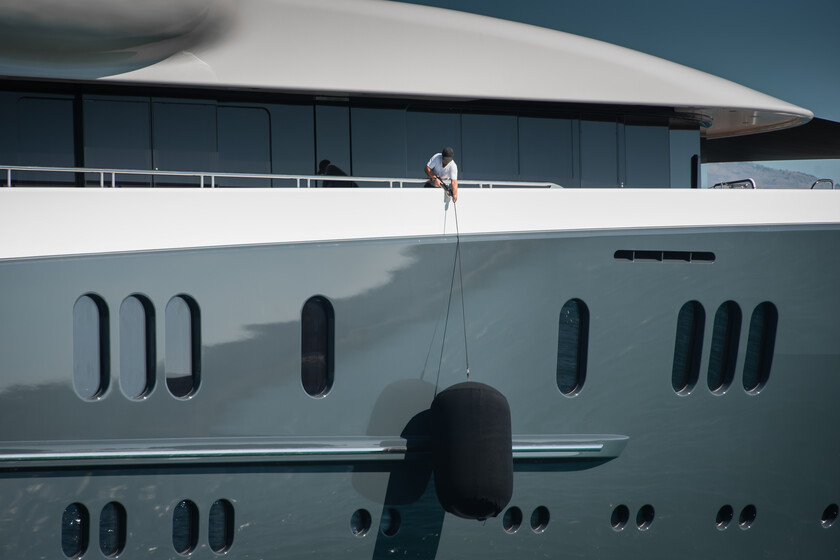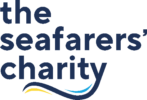Katie Earnshaw, Policy and Research Advisor at ISWAN, explores how ISWAN’s new Personal safety precautions for job-seeking yacht crew resource sheds light on a hidden dimension of yachting and provides a blueprint for collaborative action to make the industry safer for all.
In recent years, the maritime sector has begun to take steps to recognise and respond to the often-silenced issues of abuse, bullying, harassment, discrimination and violence (ABHDV) at sea. There is growing awareness of the devastating impact of ABHDV on seafarers’ health and wellbeing: ISWAN’s own helpline data consistently finds that experiencing a form of abuse is a leading factor in mental health difficulties among seafarers who contact our helplines.
Maritime as a whole has long shied away from fully acknowledging the prevalence of ABHDV at sea, an issue that is compounded by a lack of reliable data. This lack of data is perhaps even more of a challenge in the yachting industry: while many have safe and happy careers in yachting, we also know from the accounts of individual yacht crew that the industry is not immune to experiences of different forms of abuse. There can, however, be additional barriers to open discussion of experiences of abuse in the yachting industry. On the one hand, the privacy concerns and financial power of yacht owners, combined with the fascination of the general public with the perceived glamour of the superyacht world, can hinder raising issues of abuse due to fears of damaging the industry’s reputation by inciting potentially salacious press coverage. On the other, for many yacht crew, the close-knit nature of the industry and the widespread use of non-disclosure agreements (NDAs) can make it more intimidating to discuss damaging experiences through fears of compromising future career prospects or even legal action.
The lack of safe places to turn to for support was one of the drivers for the establishment in 2020 of Yacht Crew Help, ISWAN’s free, multilingual, 24/7/365 helpline for all working in the industry. Since then, yacht crew have been contacting ISWAN in confidence to seek support to cope with a range of difficulties, including the impact of ABHDV at sea. During the first years of operating Yacht Crew Help, experiences of ABHDV have accounted for a higher proportion of contacts than is the case for SeafarerHelp, ISWAN’s long-established helpline for the shipping industry: in 2022, experiences of ABHDV accounted for 9% of all issues raised to Yacht Crew Help, in comparison to 3% of issues raised to SeafarerHelp. Across all of our helplines, the issue of ABHDV at sea is highly gendered, with women proportionately more likely to seek support from ISWAN having experienced some form of abuse. In the case of Yacht Crew Help, in 2022, experiences of abuse accounted for 14% of issues raised by women, as opposed to 6% of issues raised by men. Almost 40% of all contacts involved verbal abuse or bullying and, in at least 62% of cases, senior crew members were the perpetrator. Half of all cases raised by women involved rape, other forms of sexual abuse, or sexual harassment.
There are likely to be a number of factors that contribute to the higher prevalence of contacts relating to ABHDV via Yacht Crew Help. ABHDV is an issue that disproportionately affects women, who account for a much higher proportion of people working in the yachting industry than is the case for merchant shipping. In 2022, where the gender of the caller was known, 40% of those contacting Yacht Crew Help were women, in comparison to 4% of contacts to SeafarerHelp. The often less well-defined boundaries between professional and personal lives, along with pronounced power hierarchies and the propensity for the culture onboard yachts to be highly determined by individual owners or captains, could also contribute to creating environments in which experiences of abuse can occur. The relative lack of support services available to yacht crew compared to merchant shipping could be a further factor in the higher proportion of ABHDV-related contacts.
As a result of our growing profile in providing welfare support to crew in the yachting industry, we were contacted in 2021 by representatives of Sailing Safely for Women (SSW), a Facebook network of survivors of abuse who were seeking to raise awareness about the issue of ABHDV in yachting and to take concrete steps to make the industry a safer environment. One of the factors that many of the members of the SSW group had in common was that they had found work onboard yachts through unregulated channels, for example, via social media posts. This mirrored a trend that was emerging from our own helpline data regarding the impact of less formal working arrangements in the yachting industry, including the relative lack of HR structures and lower level of trade union coverage compared to the merchant navy. In 2022, a quarter of concerns raised through Yacht Crew Help related to contractual issues, as opposed to 10% of concerns raised to SeafarerHelp. It was also becoming increasingly apparent that yacht crew were much less likely to be aware of their rights than those working in merchant shipping. Many yacht crew do not realise that they are regarded as seafarers under international law and that in many cases this grants them protections and entitlements under the Maritime Labour Convention.
The contact with SSW was the impetus for ISWAN’s new Personal safety precautions for job-seeking yacht crew resource, which was published last month. The resource exemplifies many of ISWAN’s core principles, most crucially, through its genesis in the direct concerns of seafarers. It owes its ethos, as well as much of its practical content, to those who had the courage to speak out about traumatic experiences in yachting and their determination to make the industry safer for all. This commitment to empowering current and future generations of yacht crew with knowledge and tools to make informed decisions is a driving force for the resource. As much as the practical steps that can be taken to identify potentially risky environments, the resource aims to act as a springboard for prospective yacht crew to strengthen their own understanding of what constitutes acceptable and unacceptable behaviour; to define for themselves where their boundaries lie and to have the confidence and the tools to advocate for themselves and uphold those boundaries if needed.
Crucially, the resource is designed for all who work or seek to work in yachting, regardless of whether they are professional crew or covered by the remit of the Maritime Labour Convention. Indeed, the resource contains specific advice and guidance for those who work as volunteers or ‘nautical hitchhikers’, whose rights and wellbeing are frequently overlooked in considerations of welfare needs in the industry. They are, however, a real (if well-hidden) demographic who are arguably more vulnerable than professional crew due to a higher tendency to seek roles via unregulated websites and to sail on smaller boats, sometimes alone with only the captain. Some of the horrifying experiences that volunteer crew have endured have been covered in a series by Maritime Legal Aid as well as in mainstream media reports.
ISWAN is particularly proud of the collaborative nature in which the safety resource was produced and we are committed to using this as the blueprint for future joint action to strengthen the safeguards and support available to yacht crew. Numerous individuals and organisations who care deeply about the safety and wellbeing of crew have freely given their time and expertise to contribute to the resource, greatly enriching its scope and remit. Whilst the safety resource is designed for those seeking to work in yachting, ultimately the onus is on the industry itself to take preventative steps to ensure the safety of the crew on whom it relies. Fortunately, there is real motivation from many who take great pride in the yachting industry to work together to ensure that it offers an inclusive and sustainable environment for all those who seek to join it. This resource is just the beginning of various initiatives to come. We warmly invite all those who feel they can make a contribution to bringing about change, whether this is by working with us to address structural issues or by helping us to widen our reach to yacht crew, to get in touch and add their voices to the collective effort.






